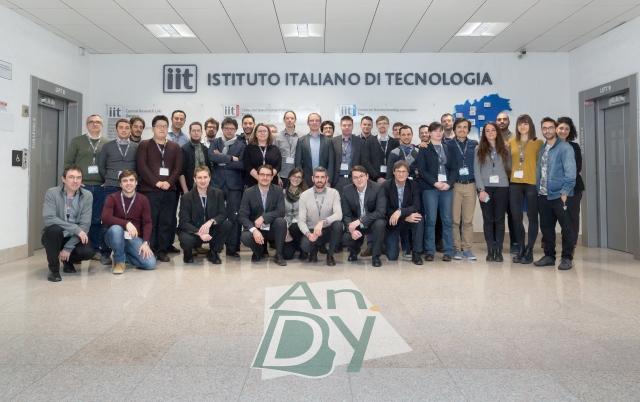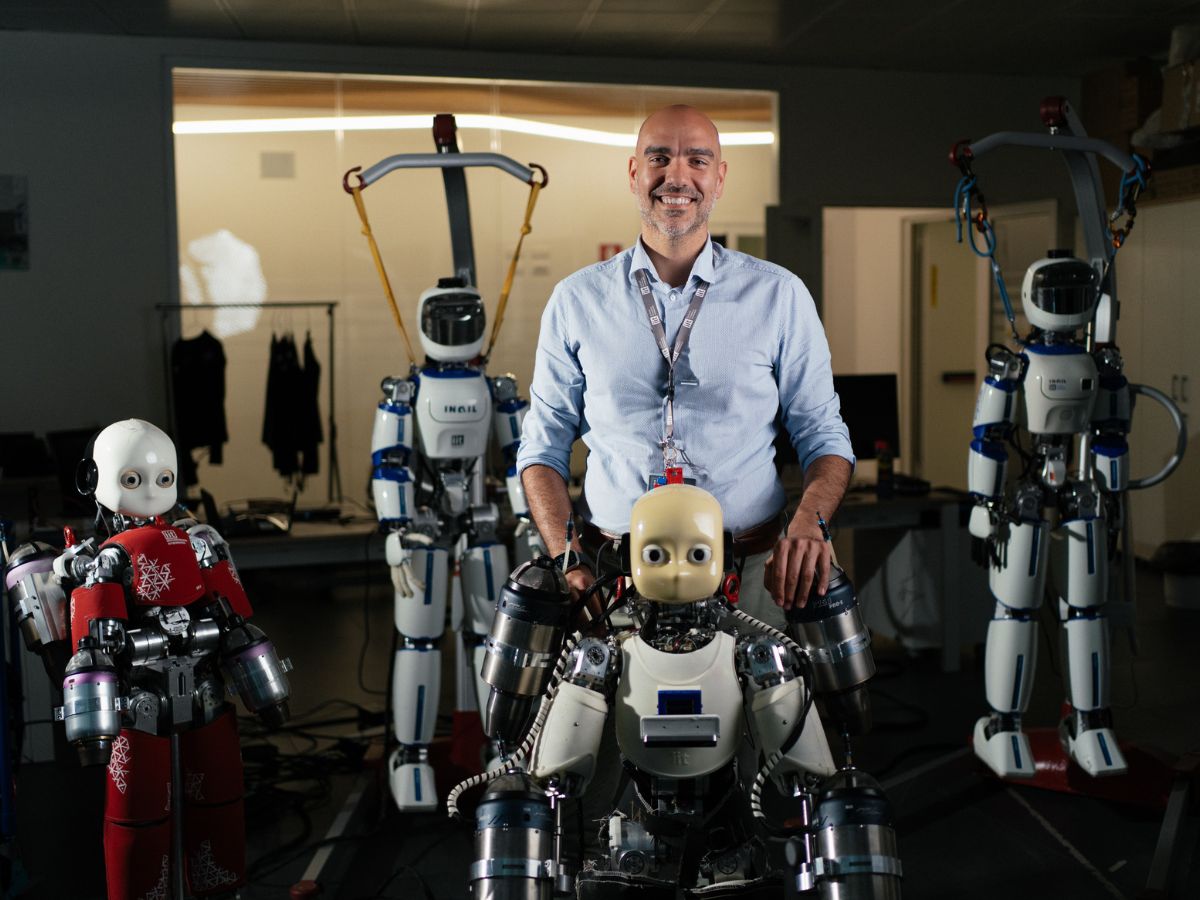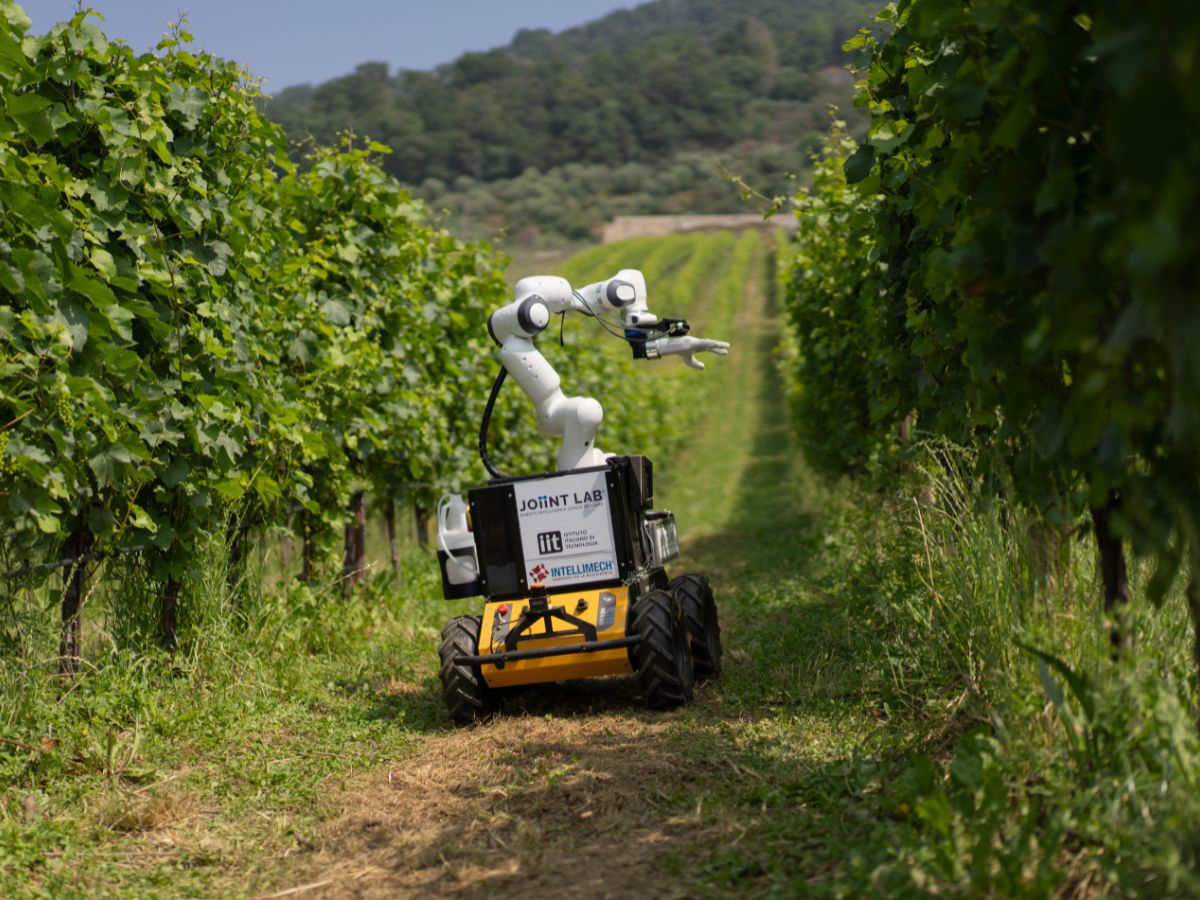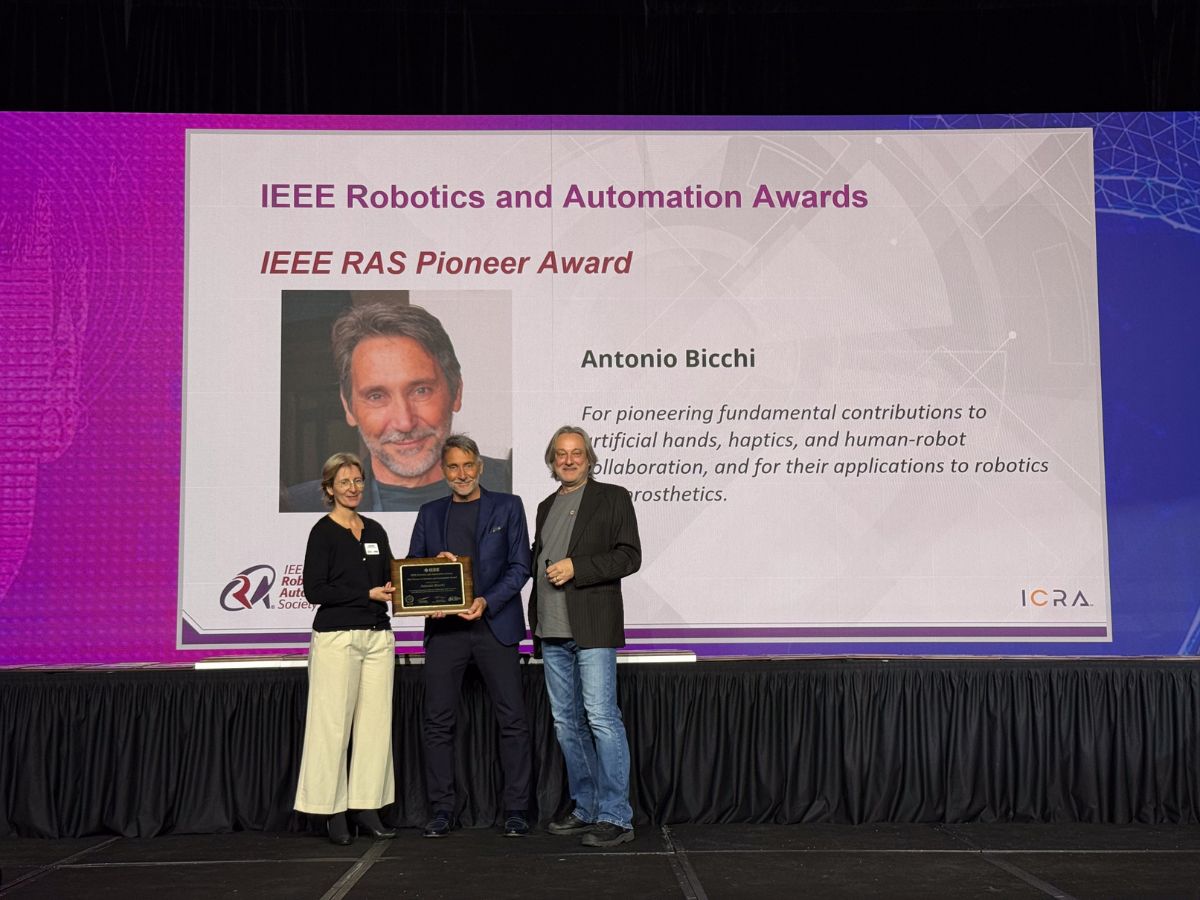The project ANDY ranked first in ICT H2020 call for Robotics (“Advanced robot capabilities research and take-up”) out of 75 submitted proposals.

Official kick-off for the European project ANDY (acronym for “Advancing Anticipatory Behaviors in Dyadic Human-Robot Collaboration”) coordinated by Francesco Nori of IIT, which aims to improve the ability of robots in cooperating with humans in industrial and domestic environments, by interpreting their physical demands and reducing their risk of injury.
ANDY focuses on one of the main themes for the European Union’s industrial future: the innovation of the production lines in perspective “industry 4.0”, by becoming leader in the design and construction of “collaborator” robots worldwide.
The project will last four years, co-funded by the European Union with about € 4 million under the program Research and Innovation Horizon 2020, and involves research institutes and international companies in Italy, France, Germany, the Netherlands, Denmark and Slovenia.
The Consortium of ANDY project consists of: IIT- Istituto Italiano di Tecnologia (as coordinator), INRIA – Institut national de recherche en informatique et en automatique (France), JSI Institut Jozef Stefan (Slovenia), DLR Deutsches Zentrum fur Luft- und Raumfahrt (Germany), Xsens Technologies BV (Netherlands), IMK Automotive GmbH (Germany), Otto Bock HealthCare GmbH (Germany), Anybody Technology A/S (Denmark). In terms of technology transfer, the project will involve bodies such as INAIL, FCA – Fiat Chrysler Automotive, AC Milan, ABB, Tecnalia, INRS – Institut national de recherche et de sécurité, Sybot, Daimler AG, AUDI, Airbus and Renault.
The project will define “collaborator” robots, that is robotic systems able to adapt to different environments (from SME to large companies, and domestic environments), focusing their activities on the interpretation of the human operator’s movements. This ability will allow them to facilitate human work by giving support to complex actions and assisting to avoid accidents.
Such a skill will be transferred on three types of robots: the “cobots“, ie certified industrial robots to work closely with humans, exoskeletons able to strengthen and guide the body of the people in their work activities, and the robot “companions”, that is advanced humanoids performing tasks appropriate to the physical state humans, also anticipating their actions.
Robots will be able to read and interpret the movement of the human body through a gradual three-stage process. The first step will be realized thanks to a sensorized suit which measures person movements by translating them into data that robots can interpret in order to intervene with specific tasks. These data will allow collaborative industrial robots (“cobot”) to interact with humans by optimizing the ergonomics, minimizing musculoskeletal stress and decreasing the risk of injuries.
The second stage will be represented by the integration of compact sensors into a robotic exoskeleton, which will be able to correct, accommodate or enhance human movements, identifying the most comfortable body stance; the exoskeleton can find application in rehabilitation also.
The last stage, the most advanced, will be based on giving to cognitive robots the ability to anticipate human behavior, so that humanoid such as iCub, can become “companions” suitable for everyday life, able to act with high speed reaction and in changing environments; these robots can be used to help elderly people in everyday tasks.





